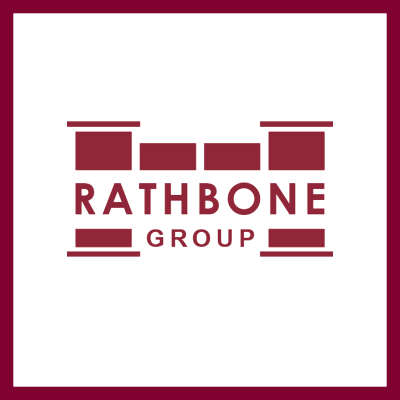
On Subrogation
inglés
Negocios
Empieza 7 días de prueba
$99 / mes después de la prueba.Cancela cuando quieras.
- 20 horas de audiolibros al mes
- Podcasts solo en Podimo
- Podcast gratuitos
Acerca de On Subrogation
Have you been looking for a podcast that focuses on insurance subrogation? Of course you have, and here you are! On Subrogation is brought to you by national subrogation law firm, Rathbone Group, LLC, and hosted by experienced litigators, who focus their practice on subrogation. It is the podcast about how to recover your damages from the people who caused them. Topics span litigation, claims, and many more. To ask questions or suggest future topics, e-mail us at podcast@rathbonegroup.com. Special thanks to Ralph DiSylvestro for our intro and outro music!
Todos los episodios
181 episodiosRefresh: Contributory Negligence: Recovery is Possible
This week, join us as we revisit our episode on Contributory Negligence as a refresher! Original Air Date: September 3, 2021 Contributory negligence is a legal standard that bars a plaintiff from recovering damages if they contributed to their injury. As little as 5% negligence can bar an injured party from recovery in some states, while other states choose not to follow the statute as strictly. In contributory negligence jurisdictions, defendants are often quick to provide reasons they should not be held liable for the damages they cause, but recovery is possible. On this week's episode, Rebecca [https://www.rathbonegroup.com/our-people/rebecca-w-wright/] speaks with attorney Adam Wilk [https://www.rathbonegroup.com/our-people/adam-r-wilk/], who handles subrogation cases in 3 of the five U.S. jurisdictions that apply a contributory negligence standard (Alabama, Maryland, North Carolina, Virginia, and DC). Adam explains how factors such as age, cognitive impairment or conduct of the plaintiff and/or defendant can allow an injured party to fight back against a contributory negligence defense to recover damages.
Open and Obvious
Not every hazard leads to liability – especially when the danger is right in front of you. The Open and Obvious doctrine is a defense that can be raised to protect a landowner from liability for a hazardous condition that was "open and obvious" to a reasonable person. While almost all jurisdictions recognize some version of the open and obvious defense, there are nuances from state to state. Listen in to this week's episode as Rebecca [https://www.rathbonegroup.com/our-people/rebecca-w-wright/] and Steve [https://www.rathbonegroup.com/our-people/steven-alsip/] discuss this defense, and the counterarguments to it, to make sure that you can successfully recover from a tortfeasor trying to avoid liability for your subrogation claim. Join us in understanding how some hazards are just too obvious to ignore.
Refresh: Raising the Roof on Roofing Cases
This week, join us as we revisit our episode on Roofing Cases as a refresher! Original Air Date: August 20, 2021. Most of us are lucky enough to live and work with a roof over our head. But who's to blame when that roof is damaged or defective? Is it the installer's responsibility? Or does the accountability come straight from the source at the manufacturer? Is there someone else to consider? It may be all three. From improper installation to storm damage and even intentional acts, roof damage and the resulting liability is complex. On this week's installment, Rebecca [https://www.rathbonegroup.com/our-people/rebecca-w-wright/] and Steve [https://www.rathbonegroup.com/our-people/steven-alsip/] peel back the layers of roofing claims and navigate who is responsible when a roof is defective or contributes to property damage or physical harm.
Serving Corporations
When it comes to serving lawsuits, the process of providing service is extremely important. But what happens if the party you are serving is not an individual with a home address, but a corporation? Who do you serve, and where? On this week's episode, join Rebecca [https://www.rathbonegroup.com/our-people/rebecca-w-wright/] and Steve [https://www.rathbonegroup.com/our-people/steven-alsip/] as they discuss the process of service on corporations, deciphering which states require service to an authorized agent from those that simply allow service on the corporate office, and when a state agent can be a substitute for either one.
Refresh: The Do's and Don'ts of Depositions
This week, join us as we revisit our episode on The Do's and Don'ts of Depositions. Original Air Date: July 9, 2021. Whether you are testifying in your personal capacity or on behalf of an insurance company, being deposed can be nerve-wracking. Proficient opposing counsel will work to find inconsistencies and prey on weak testimony to discredit a witness, and both sides will judge the witness to evaluate settlement positions. Lack of preparation can mean missing out on resolving the matter before trial, and can harm the case before the jury is even seated. But it doesn't have to be that way! This week, Rebecca [https://www.rathbonegroup.com/our-people/rebecca-w-wright/] welcomes special guest, Mark Demian [https://www.rathbonegroup.com/our-people/mark-demian/], for a how-to guide for deponents or witness who are being deposed regarding an insurance claim. Mark provides simple and effective guidelines to encourage successful and effective testimony.
Elige tu suscripción
Premium
20 horas de audiolibros
Podcasts solo en Podimo
Podcast gratuitos
Cancela cuando quieras
Empieza 7 días de prueba
Después $99 / mes
Empieza 7 días de prueba. $99 / mes después de la prueba. Cancela cuando quieras.























